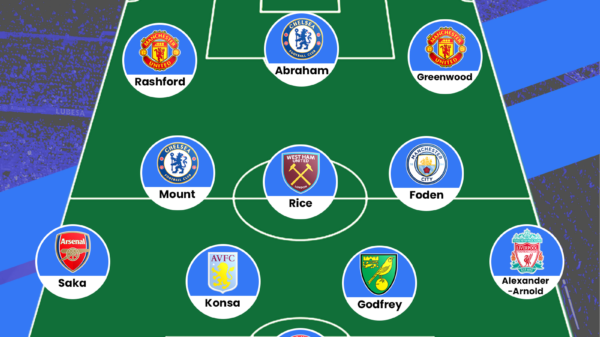The perennial question for any coach, parent and player is which philosophy works best to create the elite footballers of tomorrow. The most recent debate centres around the “game is the teacher” model and how football should be taught by having more game related activities. Where does that leave isolated and unopposed practice which seems to now be mispresented as having no benefit to developing footballers?
As a professional soccer coach and foundation phase specialist for over 10 years working around the world and at some of the best English Premiership academies, my stance is very straight forward. Without a doubt the basic premise of the “game is the teacher” model is correct and the majority of training time should be focused on game related play BUT learning to master the ball and focusing on technique, especially at young ages, is vital to producing elite footballers. For our youth, the days of coming home from school and heading out to the park or playgrounds to play football with friends are becoming rarer hence that important learning mechanism is being missed. Coaching sessions are usually only a few hours a week so in theory there are spare times where football can be played. This is where unopposed practice can make a difference to learn, be creative and master the ball whilst having the game firmly in the mind as well.
How do you learn a new language?
A simple analogy would be the learning of a new language. Generally the fastest route would be to visit the country and immerse yourself after which you would pick it up. However, are you learning the correct vocabulary and sentence construction such that you could write great literary pieces like Shakespeare? The answer is more often than not, a resounding no! To be elite, like Shakespeare, you need to understand the language inside and out starting from the basics and building your way up to create that masterpiece. You are better off seeking a teacher or a company that provides a course such as UKLP. The same applies to football where there are various building blocks to master, of which technique is the foundation from which all footballers are created and essentially the alphabet of football.
Let’s look at the science. There are plenty of research articles in the public domain about motor neural pathways and how repetition can help build muscle memory. There is one quote that I have found most suitable to football at young ages and was in the book “Youth Development in Football: Lessons from the World’s Best Academies” by Mark Nesti and Chris Sulley. It states:
“The Foundation Phase is often referred to as the ‘golden age’ of learning psycho-motor skills, as the brain appears to be receptive at laying down neural pathways. It is therefore important that practice relates closely to the game in that it is directional, competitive and realistic. The small-sided games format fulfils these criteria and helps to create the environment that young players want to be involved in”
The statement would suggest that learning the ‘language of football’ is more challenging as you grow older hence the reason so many academies should focus on technique at younger ages. It has frustrated me for years when I see coaches using boring, closed passing drills with their players with no end goal. Every session you have with your players should be fun, challenging with set outcomes that RELATE to the game. This is even more important when putting in the extra hours and doing isolated unopposed practice to master those techniques and skills.
Technical Excellence Cycle
My philosophy is clear and has brought great success to the players that I have taught over the years at both elite and recreational level. Being involved with hundreds of footballers I developed the Technical Excellence Cycle which is a model that showcases 3 main elements that when repeated in a cycle can significantly improve a player. Each practice has a purpose and outcome that is related to the game! Note that this model is applied to both isolated and team based sessions.
Ball Mastery – This involves the fundamental techniques to control and manipulate the ball to do what you want it to. Become a wizard with the ball at your feet.
Movement Development – How to shape and move your body to maximise efficiency and become dynamic and explosive.
Functional Practices – How it relates to the game so players gain awareness to be creative, impactful and assist decision making.
I am continuously asked how do you quantify your coaching techniques and it is pretty much impossible as there are so many variables in play but it’s the success stories of players improving and fulfilling their potential at all levels which shows that the philosophy works.
Where can unopposed practice benefit?
So how does the philosophy work with isolated practice and where does it sit with the ‘game is the teacher’ model. Let’s first be clear that isolated practice is a supplementary method and NOT performed instead of game based training. It has most impact at younger ages especially foundation phase as suggested by the science.
“The Talent Code” by Daniel Coyle looks at myelin, the deep practice cell used in any skill acquisition. The book has synergies with football where it talks about chunking and slowing things down to get them right. It states:
“First, going slow allows you to attend more closely to errors, creating a higher degree of precision with each firing and when it comes to growing myelin, precision is everything. Second, going slow helps the practiser to develop something even more important: a working perception of the skill’s internal blueprints – the shape and rhythm of the interlocking skill circuits.”
When I work with players of any ability, there are 3 main targets that I challenge every player to achieve all of which can be developed with unopposed and purposeful training.
- Ability to receive and play off both feet – Without question, every elite player must be able to receive and play off both feet. That’s not to say that it is always done in game situations but you need it in your locker as you will be faced with that scenario.

- Dominating 1v1 situations – No matter what position a player plays, they will always be confronted with a 1v1 problem and it’s one they will need to solve. Before even considering semi-opposed or opposed practices to master this, it is vital to first understand the skills and movement mechanics of how you can win this battle and embed this into your sub-conscious. This is where learning unopposed isolated training can benefit.

- Complete master of the ball – More touches on the ball is a mantra especially at younger ages but it needs to be purposeful working on all surfaces of the feet and body. Having 1:1 ball ratio time is essential as to truly master the ball, a player needs to build a relationship with it and not be a stranger to it. Isolated training is the ideal time to refine and master the football techniques giving players the composure and confidence when with the ball.
Online football education
Football is the number one game played globally with 270 million male and female players playing globally (stat courtesy fifa.com). My coaching ambition has always been to create as many technically impactful players as possible and impart as much football knowledge as I can.
It is for this reason that I created http://mypersonalfootballcoach.com which is a football education platform where we will provide elite training programmes, tools and resources for parents, coaches and players all over the world to improve their football.
“Dynamic Ball Mastery” is an elite soccer training programme for players of any age and ability. I wanted to provide a technical programme that encompasses my philosophy for unopposed practice but centred around understanding and learning the game of football. It needed to be fun, yet challenging and easy to use for players, parents and coaches. Every session is carefully designed to incorporate the 3 stages of the technical excellence cycle with defined videos, outcomes and set timings. The most important part is that every session is designed to last just 20 minutes to supplement a player’s normal training which makes it achievable for everyone.
It baffles me why people cannot see that there is a place for isolated and unopposed practice alongside the ‘game is the teacher’ model just like there is in learning the sports science, nutrition and psychological building blocks. I have seen it make a significant difference as a supplementary method and hope for more technically gifted players entertaining us on the football pitches in the future.
Article courtesy http://
- Is the game the only teacher? - December 18, 2015





























































